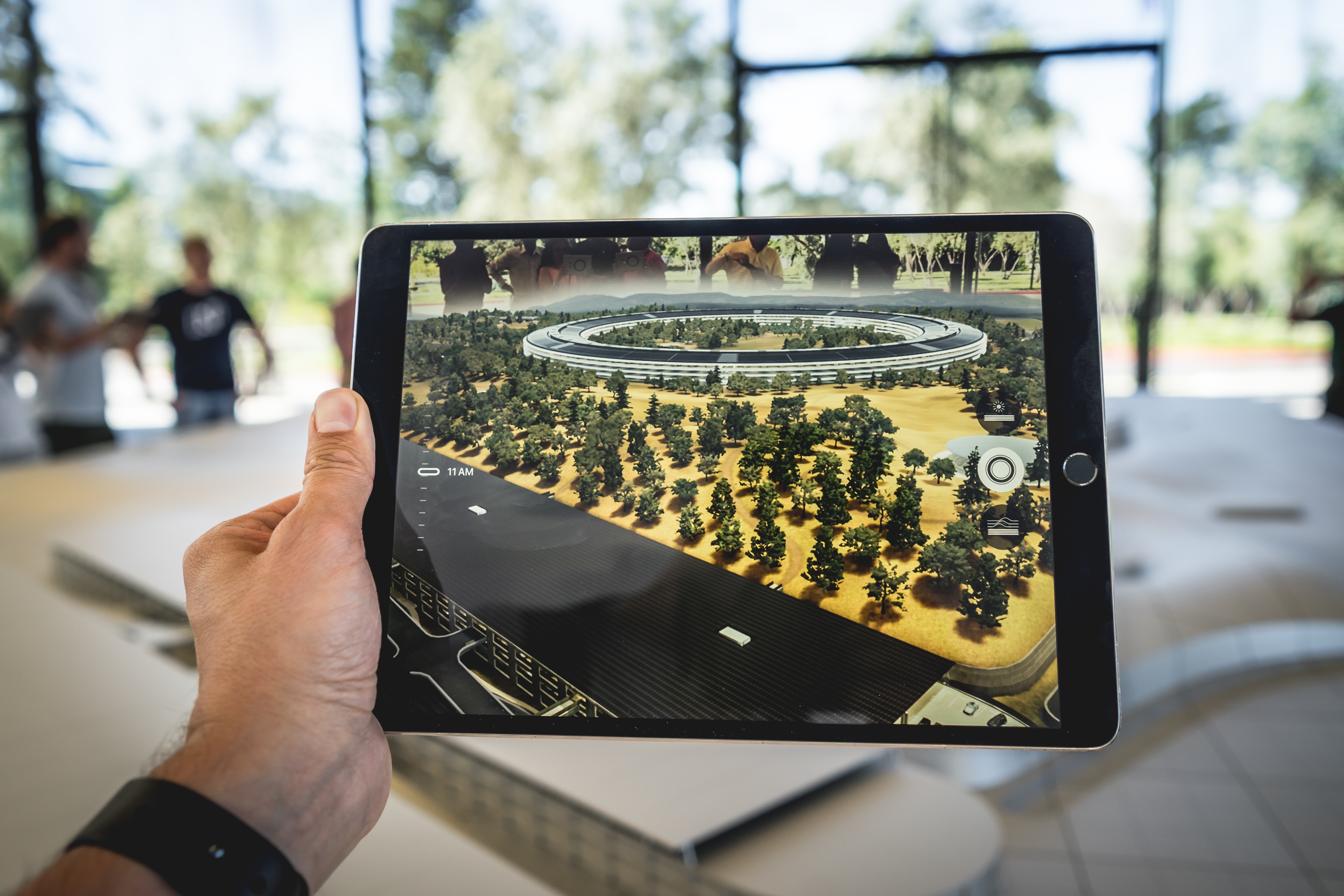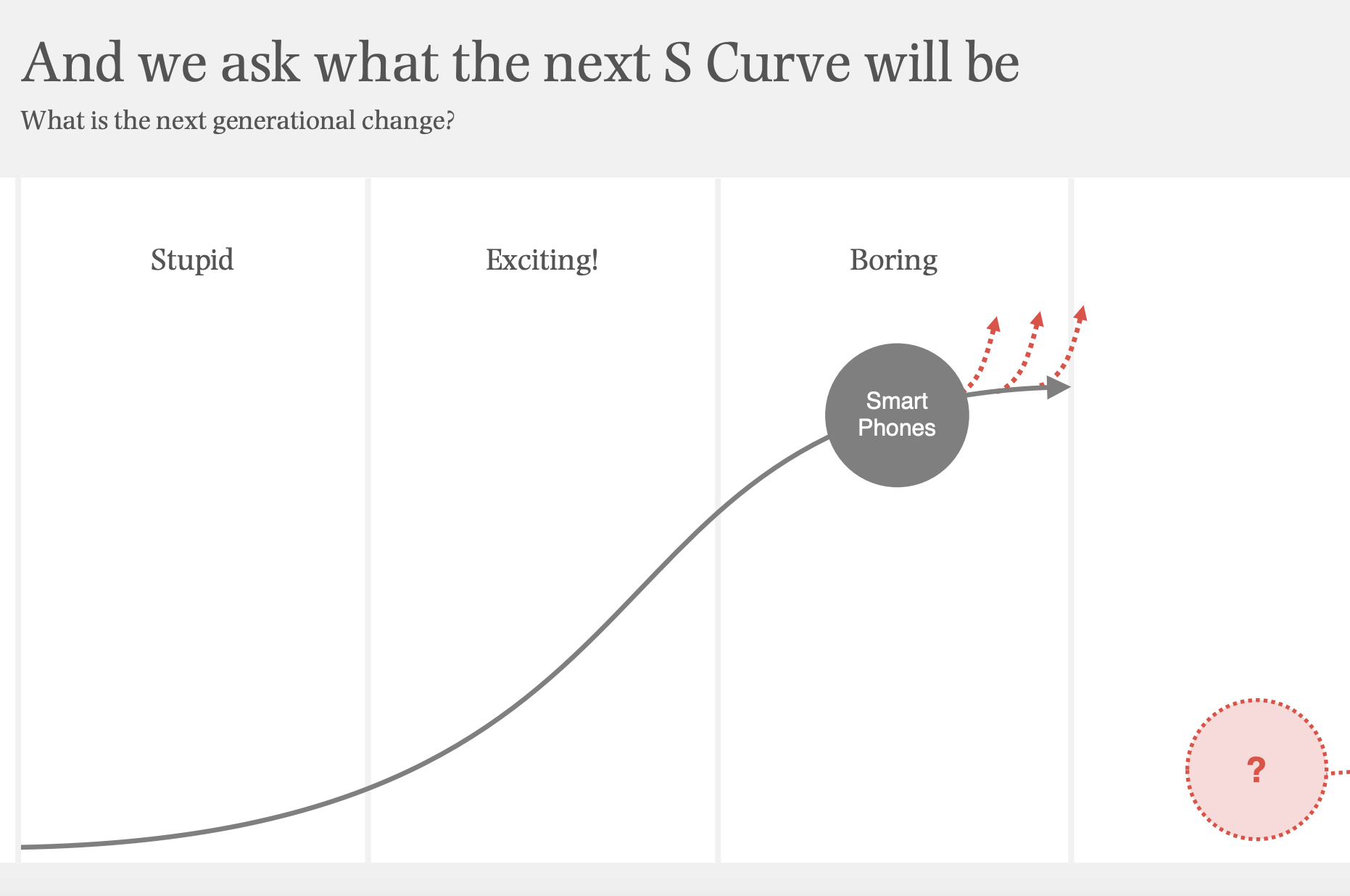
Emerging technology for the next 10 years
Most revolutionary technologies seemingly come out of nowhere. Up until that moment however they are seen as “useless”. This is usually because the invention of technology precedes the first useful application of it.
This has been well illustrated in Ben Evans’ The shoulders of giants, which states that new technologies come in S curves. “New tech generally goes from stupid to exciting to boring” (Presentations — Benedict Evans)

There are now a number of emerging technologies which haven’t reached product-market fit and thus mass adoption, but which have feel exciting and full of potential for new paradigm shifts within our society. Many teams are now devoted to exploring them in the hopes that they will shape the next decade.
Here’s a quick take on each of the ones that I am following:
1. Blockchain/Decentralized Networks - The promise of blockchain powering a new global currency has been replaced by blockchain as a facilitator of contracts powered by code that can be made between trust-less parties. I see blockchain realistically useful as a database shared by large organizations forming partnerships where the network provides the trust as software that ensures that all parties are using the data responsibly and using a paper trail. Also, elections and government services with accountability like in Estonia. Look it up!
2. Augmented Reality - Layering data on top of what we see can be huge in large industries like construction, manufacturing and technical drawing and as sensors improve this can become as ubiquitous as iPads in airports… Ever been to Newark Airpot?
3. No-code Programming - More people want to make apps and these once entry level type tools which used to be reserved to teaching kids programming concepts are becoming increasingly sophisticated. Coupled with applications being comprised of other SaaS tools, the likelihood that the UX of your next favorite app was built with no code is becoming slightly higher than yesterday.
4. Machine Learning - While I don’t believe the singularity is anywhere near yet, there are some good algorithms to have computers “learn” specific things given very well defined rules. That’s to stress that I think fear of AI is overrated (for now), but ML for self driving cars, pharmaceuticals, or any pattern detection type work can give consumers and industries capabilities we haven’t even dreamt up yet.
Those three should suffice for now, three more coming in part two.
Photo by Patrick Schneider on Unsplash
